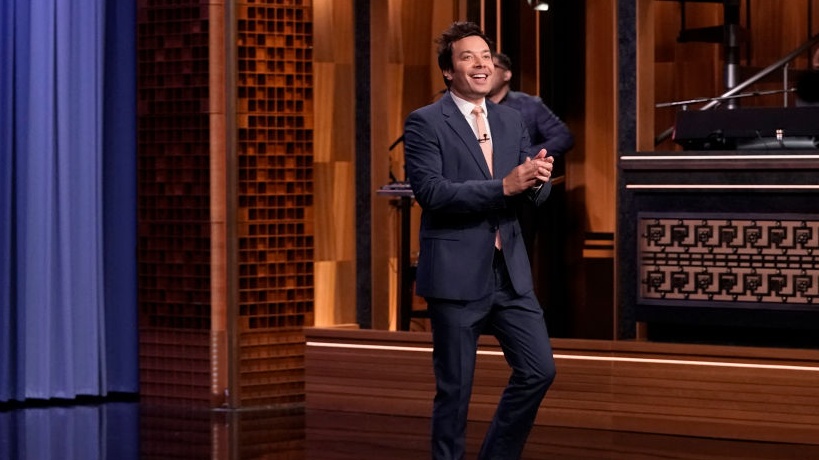Jimmy Fallon addressed the social media controversy over the last episode of his talk show The Tonight Show Starring Jimmy Fallon, where he had fledgling pop star and TikTok personality Addison Rae perform eight different dances that are popular on the platform, a number of which came from Black creators.
The clip made its way to Twitter and Instagram, where it faced significant criticism, not just for Rae's inability to perform the dances but also for the complete erasure of the Black teens who created almost all of them.
Fans were incensed that Fallon did not bring on any of the creators and instead chose a white woman to perform them all, without even mentioning who created them.
This is what white privilege looks like—Black creators innovate dances and do them amazingly but Addison Rae gets invited on Fallon to perform them in a ho-hum way. She’s not racist, Fallon’s not racist, but somehow the Black dancers are erased. Even though they dance better. https://t.co/svgBu5JDxz
— Young Daddy (@Toure) March 29, 2021
On Monday, Fallon sought to make up for the mistake.
"On our last show before break, we did a bit with Addison Rae, where she taught me eight viral TikTok dances. Now, we recognize the creators of those dances deserve to have their own spotlight, so right now, some of the creators will join me to talk about how their dance went viral, and then perform the dance themselves," Fallon said.
He brought on Mya Nicole Johnson, Chris Cotter, Dorien Scott, Fur-Quan Powell, Camyra Franklin, Adam Snyder, Nate Nale, Greg Dahl and Keara Wilson, who spoke about their creative dances and got the chance to perform them.
The episode with Rae drew backlash online because it was a visual representation of something Black TikTok creators have long criticized.
Before the latest Fallon episode, Johnson told TMZ that she was disappointed to see the segment.
“I was shocked and I was really happy ’cause it’s like my challenge made it all the way to TV, which is like—that’s crazy. But then as I started to think, I was like dang, I wish that could’ve been me and Chris [Cotter] performing our own challenge at his show,” Johnson said.
Raw herself faced backlash for her flippant response to the controversy, dismissing the concerns of the teens entirely.
“I think they were all credited in the original YouTube posting. It’s kinda hard to credit during the show. But they all know that I love them so much, and I support all of them so much. Hopefully, one day we can all meet up and dance together,” Rae told TMZ.
Since TikTok emerged as a social media platform adored by young people, Black teens and young people have been creating massively popular dance crazes to their favorite hit songs.
But over the years a pattern emerged. Black TikTokers would create an ornate dance and white teens with massive audiences on the platform would take them, perform the dances themselves for their millions of fans and gain even more followers.
The problem came to a head last year, as Blavity previously reported, when 14-year-old Jalaiah Harmon spoke to The New York Times about the problem publicly. Harmon created the massively popular dance "Renegade" to the song "Lottery" by K Camp in 2019.
“I think I could have gotten money for it, promos for it, I could have gotten famous off it, get noticed. I don’t think any of that stuff has happened for me because no one knows I made the dance,” Harmon told The New York Times.
Since then, TikTok has sought to address the issue head on, launching an incubation program in January for Black creators to help elevate and amplify their voices within the digital community.
"TikTok for Black Creatives was born from our continued commitment to support the Black community on TikTok. We’ve seen Black creators start trends, connect with audiences, and inspire others from across different communities," Kudzi Chikumbu, TikTok U.S. Director Of Creator Community stated in a press release.
"This program is intended to identify, support, and elevate the next generation of culture-driving Black creators and artists by giving them the often-hidden tools and opportunities that can help them transform their creativity into successful careers. Because at the end of the day, Black culture is culture, and culture starts on TikTok," Chikumbu added.
